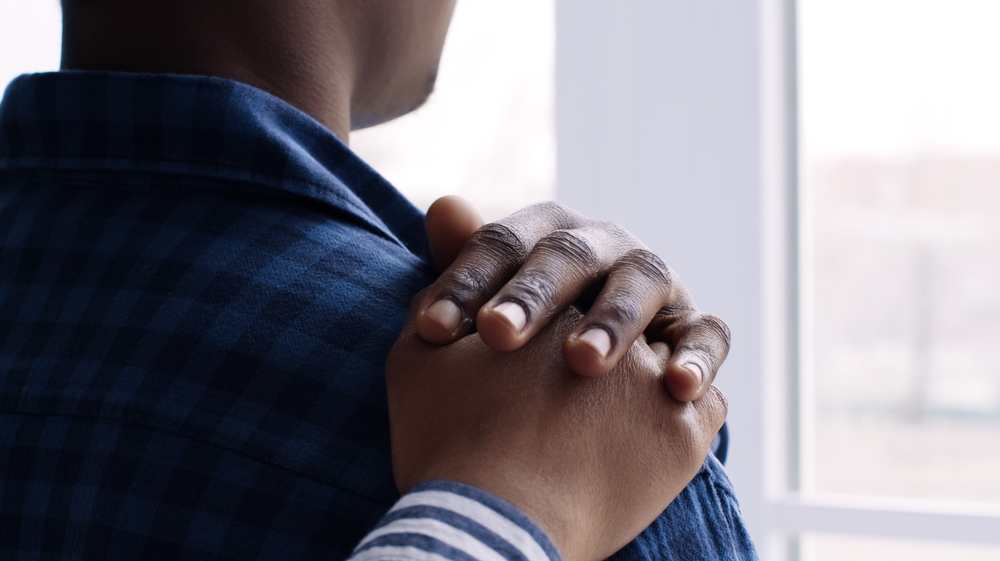Although grieving the death of a parent is an experience shared throughout human history, it’s no less devastating. No matter how old you are when a parent dies, and no matter how close your relationship with them was, losing a parent is a life-changing event.
How Losing a Parent Changes You

For those reading this today who have already experienced the loss of a parent, you have our deepest sympathies and our sincere hope for your complete healing process, no matter how long it takes. We’ve included a list of helpful resources at the end of this article for anyone who needs support coping with grief.
1. You Become More Anxious

Stress becomes harder to cope with, and you find yourself feeling overwhelmed even by ordinary responsibilities. You realize that you’re worrying more, especially about your health and that of your family. Research even shows that people experiencing grief from the loss of a parent are more likely to have a higher risk of anxiety, depression, and substance abuse (1)
2. You Can’t Deal With People Complaining About Their Parents

You used to let other people’s negative remarks about their parents go unnoticed, but now it irks you that anyone would complain about their parents’ quirks. You would give anything to get those long voicemails, infamous soup recipes, and embarrassing nicknames back again.
Read More: Parents are Imperfect, Flawed Human Beings, Just Like Everyone Else
3. You Can Feel Grief in Your Body

As if every cell in your body remembers the warm hug of your parent, your body can become physically sick from grief. Men are especially likely to experience dips in their health and well-being when they lose a parent. (1) Don’t forget to care for your own wellness as you grieve, your healing process is emotional, spiritual, and physical.
4. You Learn to Live with Sadness

We’ve shared before why grief isn’t something to “get over”, but has many different stages and facets. You realize that you will never stop missing your parent, and their absence will be more obvious some days than others. But you eventually learn to cope with your loss and keep moving forward.
If, however, you or someone you love is experiencing severe grief that doesn’t seem to fluctuate or ebb over a period of months or years, you should speak to a medical care provider about persistent complex bereavement disorder, a mental health condition in which grief interrupts your ability to function for a long period of time.
5. Holidays Have Changed

Most of us inherit the significance of special days from our parents. They were the first people in our lives to teach us how to celebrate life’s milestones. Without them, holidays and special occasions over the years can make you feel lonely, melancholy, and hollow. But as time goes on, you will learn to create new meaning for those special days.
6. You Learn to Accept Their Flaws

When you were young, you looked up to your parents and trusted them completely. But with maturity came the realization that they were people, just like you, and they were trying their best to care for you in a complicated world. No matter what your relationship with your parent was like, once they’re gone, you find yourself coming to terms with their flaws and mistakes. You see them in a new light, and you learn to forgive the times they fell short.
7. Your Emotions Become More Complicated

Grief is an experience, not a feeling, and it is made up of many complicated and often conflicting emotions. You can feel sadness, guilt, anger, fear, relief, and numbness all within the space of a few minutes (2). Don’t shy away from your negative emotions. They are all a part of healing in a healthy way.
Read More: 20-Year-Old Takes On Raising Her Five Siblings After Both Parents Die From Cancer
8. Your Relationship with Your Siblings Changes

Every family unit has a unique dynamic, held in place by each member. Whether you have a blended family, a separated family, or anything else, you’ll notice that losing a parent can be a catalyst for change between you and your siblings. For some families, the shock of grief can cause friction and conflict between brothers and sisters. For others, a loss in the family can actually lead to the healing of broken relationships. Don’t undervalue the bonds you have with your remaining loved ones. If you can, commit to checking in on one another.
9. You Catch Yourself Trying to Call Them

One of the most heartbreaking feelings as you grieve is picking up a phone to share some news with a parent and then realizing that they won’t be on the other end of the line to listen. You can’t help but grieve all of the moments you won’t be able to share with them.
10. You Learn How Strong Love Actually Is

The beautiful thing about sadness is that it reminds you of how deep your love for your parent actually goes. It’s no real consolation, but as you reflect on the time you did have with your mother or father, you will appreciate all the new perspectives of love that start to surface.
If you need any support through your grieving and healing process, see these resources:
- Canadian Virtual Hospice www.mygrief.ca
- Grief.com (USA) www.grief.com
- If you or someone you know is suffering from a mental health crisis, please reach out to a crisis line in your area. Here are some helpful numbers:
- National Suicide Prevention Lifeline (USA): 1-800-273-8255
- Depression Hotline (USA): 1-866-208-4949
- Crisis Text Line (USA): 741741
- Kids Help Phone: (CAN): 1-800-668-6868
- Crisis Services Canada: 1-833-456-4566 or text 45645
- For life-threatening crises, call 9-1-1.
Read More: 5 Signs Your Relationship With Your Parents Needs Healing

